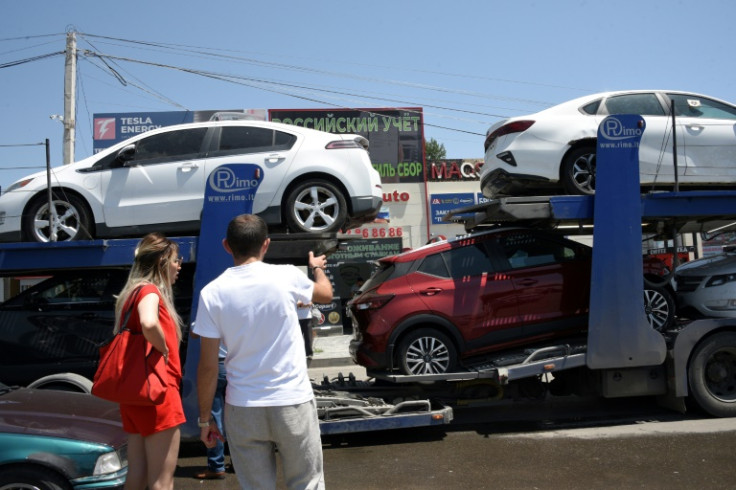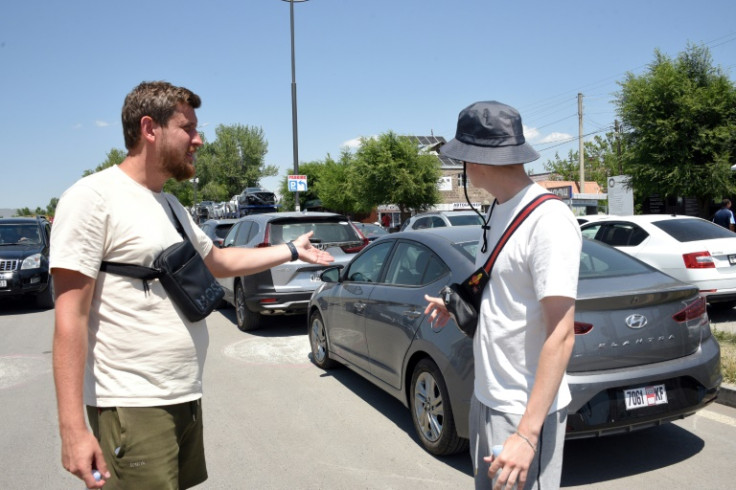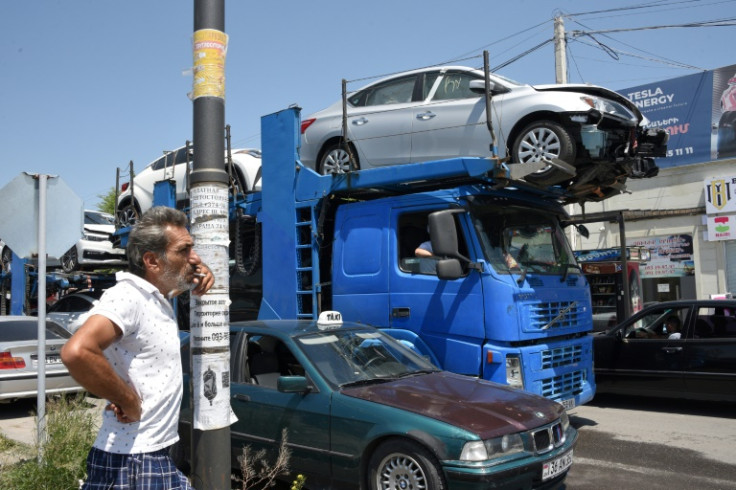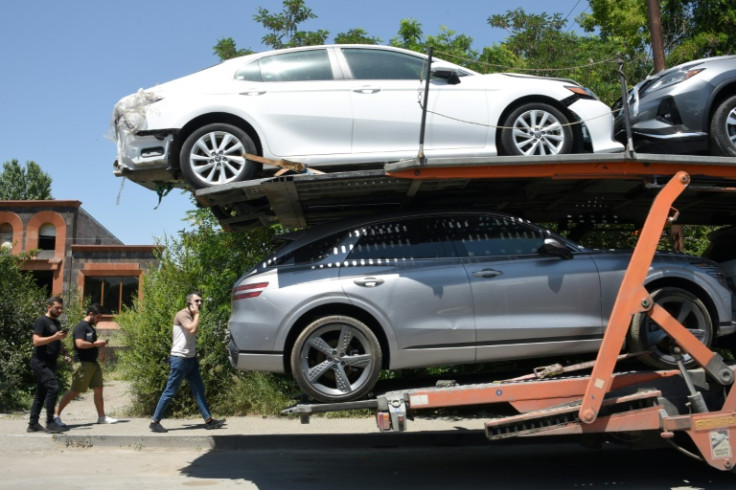Armenia Funnels US Cars To Russia, In Sanctions' Evasion

A kilometres-long caravan of trailers loaded with used cars meanders on a dusty road leading to a customs terminal in the Armenian city of Gyumri.
Russia's invasion of Ukraine and unprecedented Western sanctions levied on Moscow have created a business opportunity for used car dealers like 31-year-old Yaroslav Kolchenko, who sips a coffee in the sun near the queue.
The US and the EU have banned the export of vehicles to Russia but cars can still be cleared through Armenia, and Kolchenko stands to gain.
"Today even wealthy Russians only have access to used American cars brought to Russia via Armenia," he told AFP.
The native of Saint Petersburg described the arduous journey for vehicles coming to Russia in the wake of sanctions.
"Used, damaged or cheap cars are bought at online auctions in the United States," he explained.
They are then "transported by sea to the Georgian port of Poti, repaired, transported to Armenia for customs clearance, and then taken to Russia by land via Georgia".
The parallel exports are generally seen as a legal grey area and contradict the spirit of sanctions.
The new and lucrative route helps explain growing Ukrainian and Western concerns that Russia's economic partners in the ex-Soviet Caucasus region or Central Asia are aiding Moscow bypass sanctions.
Armenia fell under the spotlight last year when President Vahagn Khachaturyan said Russia would "withstand sanctions" and vowed closer economic ties with "brotherly" Moscow.
The small and poor Caucasus country has a free trade agreement with Russia and clearing cars at Armenian customs is much cheaper compared to Russia.
This has helped Armenia emerge as a hub for re-exports from the United States to Russia after Western car dealers closed dealerships.
Kolchenko's business partner, Andrei, who gave his first name only, said they have been in the business since the war started last February.
"We sold eight cars in April alone and plan to expand the business, which is pretty profitable," he said.
By way of example, Andrei said one car he just purchased for $13,000 would be sold in Saint Petersburg for at least $23,000 with customs costs of spend around $5,000.
Those figures help explain why Armenia's trade turnover with Russia skyrocketed since Moscow's all-out invasion of Ukraine.
Official statistics show a 2.4-fold surge in exports that reached a record $2.4 billion last year.
Car re-exports grew last year by 170 percent, and more than 450,000 cars -- mostly from the United States -- were taken to Russia in the first quarter of 2023.
In March, the US departments of justice, treasury and commerce said in a joint report that Armenia was among the countries used as transhipment points to Russia.
The EU in June introduced new measures to its 11th sanctions package against Russia to clamp down on the evasion of restrictions, specifically closing loopholes on the re-exportation via third countries of sensitive technology like microchips.
Prime Minister Nikol Pashinyan told AFP this month that complying with Western sanctions without angering a key economic partner was a difficult balancing act.
"We're in close contact and cooperation with the EU special envoy and the representative of the US to ensure that we act as a responsible member of the international community," he said.
"At the official level, we do not have any objections or complaints from European or American partners, nor from Russia."
Still Yaroslav said that "what is happening here in Gyumri shows that any sanctions could be evaded."
"Of course, the Americans are not happy about it, and they will probably try to cause trouble but they will fail. You can't isolate a country as big as Russia," he said.
Standing nearby in the shadow of a wilted acacia tree, Andrei smiled in agreement.
"A they say, water will always find new channel if you block a river."



© Copyright AFP 2025. All rights reserved.





















